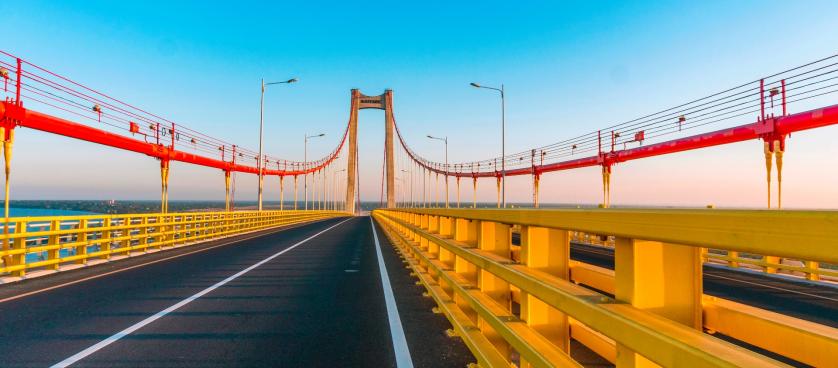Green shoots

Key contact
Stephan Luhrmann, partner at CMS Chile, and Hugo Coetzee, Head of the CMS Africa Group talk about how digital transformation and sustainability could be the route out of the COVID crisis for Africa and Latin America

The differing impact of the COVID-19 pandemic is illustrated by the starkly contrasting spread of infection through Africa and Latin America in 2020 and into 2021. Yet the two regions’ routes out of pandemic-related economic distress lie in a common emphasis on digital and sustainable initiatives. For governments and financiers, the realisation of digital transformation and sustainability programmes has only been accelerated by the extraordinary events of the past year.
However, the effort required for the recovery from the crisis on both continents is not to be underestimated. Latin America has been ravaged by the pandemic, with Brazil, Mexico, Peru, Argentina and Colombia among the worst affected nations in the world. At least 34 million jobs were lost due to the COVID-19 crisis in Latin America and the Caribbean, according to a report by the International Labour Organisation in October 2020. In a region that typically suffers higher incidences of economic and political volatility than other continents, it faces a difficult revival. Conversely, South Africa aside, the African continent has not been hit by a devastating wave of COVID in the same way that other regions have.
Cheap debt and government support
For both continents, their record in riding out previous economic slumps should provide an element of confidence. Government programmes, including infrastructure projects, will deliver greater economic stability and opportunities for investment. The availability of finance from multilateral lenders and development finance institutions (DFIs) also provides a strong element of market assurance in the face of the unprecedented global health crisis.
Like the rest of the world, Africa and Latin America will also benefit from enhanced digital infrastructure. This ties in with the expansion of the start-up and growth company sector, especially evident in Brazil. As of April 2021, Latin America is home to 16 unicorns (privately held start-ups valued at over USD 1bn) according to Statista. “There’s a clear shift to digital,” says Stephan Luhrmann, partner in the Dispute Resolution Group and an environmental litigation specialist at CMS Chile.
Prioritising sustainability
Stephan Luhrmann predicts that a digital and tech emphasis will bolster economies, but that most deals and programmes will be influenced by the green and sustainability agenda, as investors and financiers are paying greater attention to ESG, “The world is going to be greener and cleaner in terms of investment. That is what we all expect.”
Multilaterals and DFIs are offering relatively cheap debt, but they are paying ever greater attention to ethical and purpose-driven factors including clean energy and low carbon initiatives. In February 2021, the Development Bank of Southern Africa (DBSA) launched its first green bond, issued through a private placement with Agence Française de Développement (AFD), the French DFI. CMS teams in Paris and Johannesburg advised AFD.
The use of green bonds to raise capital in Africa is a growing phenomenon. Acorn Holdings, the Nairobi-based property developer, issued the first green bond on the Nairobi Securities Exchange in January 2020, alongside an offering on the London Stock Exchange. The proceeds are to finance the construction of green-certified student accommodation in Kenya’s capital.
“There is a push to develop financial markets in Africa, because there is a big need. I see green bonds helping there and we are definitely seeing the growth of these type of bonds in Africa,” says Hugo Coetzee, Head of the CMS Africa Group.
Sustainability is high on the agenda in Latin America as well, where green and sustainability bonds have an established track record. The Inter-American Development Bank (IDB) publishes a Corporate Sustainability Index for Latin America and the Caribbean; and Stephan Luhrmann says that the number of businesses in the index that are headquartered in Latin America has risen dramatically in recent years such that it is no longer largely dominated by foreign multinationals. “The issue of sustainability or investment sustainability is getting enforced in the region now,” he remarks.
Competing agendas
ESG is not the panacea for all economic and social problems however. The movement is typically less advanced in countries that are battling against poverty, unemployment, poor health and an inadequate educational infrastructure.
Chile’s financial regulator announced in 2019 that it was moving towards mandatory ESG reporting as part of tighter disclosure requirements and its Ministry of Finance published a new sustainable bond framework in November 2020.
At the other end of the spectrum, less developed nations in Latin America and Africa have high unemployment rates and skills gaps, meaning that ESG is often of secondary importance. According to Hugo Coetzee, “It depends on whether government bodies have prescribed what businesses have to do and comply with. In companies that are internationally connected or part of international organisations or funds, you see these elements coming through, but in certain parts of Africa, there’s simply a more pressing need to deal with unemployment and other economic priorities.”
What Africa and Latin America can still expect is continued investment from China as part of its Belt and Road Initiative (BRI). African infrastructure, in particular, has been transformed by Chinese capital over the last decade, and while investment has slowed since the start of the pandemic, it is becoming more focused, according to Hugo Coetzee. He points to the ‘Health Silk Road’ programme that is part of China’s efforts to provide medical support to regions hit by the COVID crisis. “As a result of the pandemic, we can see growth in that area. So, I do think there's still a continued role for China,” he comments.
China’s Health Silk Road strategy is just one example of the transformative effects of the global pandemic. Worldwide investment dynamics have altered, with digital transformation and sustainability, for example, taking precedence over other pre-pandemic priorities. Latin America and Africa have different economic characteristics and histories, but they share the same needs when it comes to emerging from the tragic events of 2020 and 2021.




